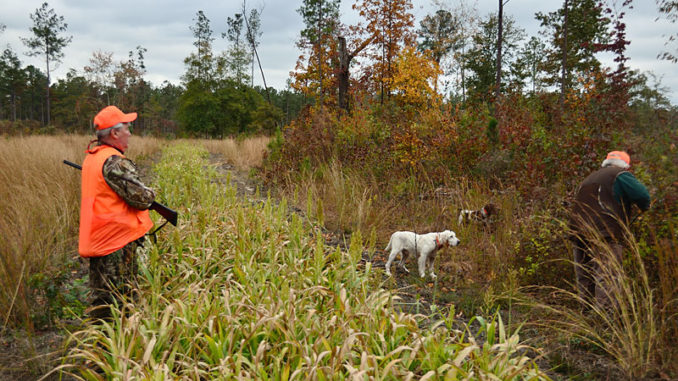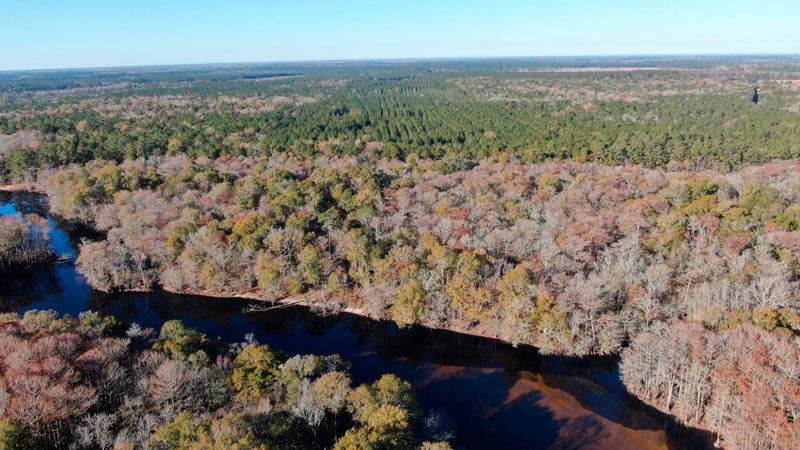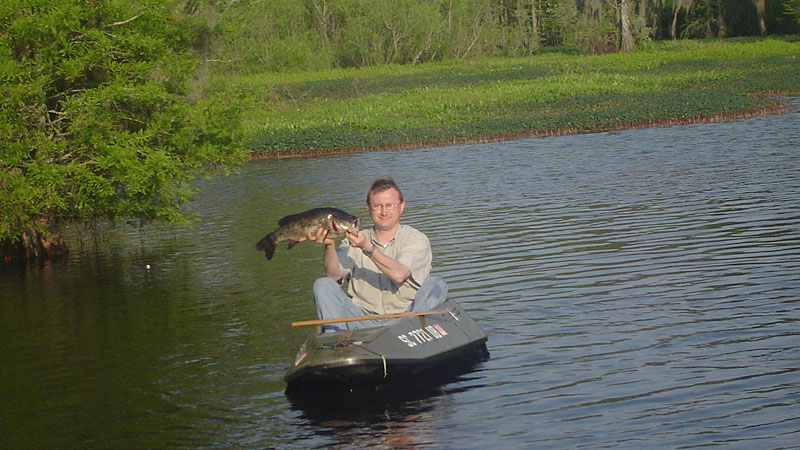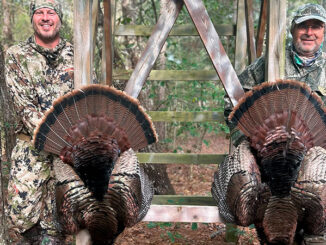
Hunters across the country are steadily looking for a tract of land to hunt. Whether for a new place to hunt or to replace a lost lease, hunters are always on the hunt for hunting land. More and more hunters are shifting gears and purchasing hunting land over just the typical annual land lease. Land leases are becoming less available and purchasing your own piece of heaven is the solid method to end uncertainty and to invest in future wildlife and economic returns as a bonus.
Every year, hunters that get unsatisfied with their current place, in need of another tract, or just need a parcel to hunt, will scour the countryside looking for an available tract of land with a good opportunity to take wildlife. Hunting land is something that seems to be in great supply. But for many hunters, finding a tract of hunting land that isn’t already leased can be an uphill battle in most areas of the state. Hunters must have good connections with rural landowners and a good track record to secure a good hunting lease, or any hunting lease for that matter. And then, these leases can be stripped away for any number of reasons.
At the end of the day, every sportsman needs their own piece of heaven and the best way to secure a parcel for the future is through land ownership. Of course, land ownership isn’t always possible for many hunters. At least it may seem that way. For the amount of money hunters invest in land leases year after year, land ownership is a possibility. Sure, hunters typically will have to settle for fewer land acres to hunt with land ownership over leasing.

Investments in the land are more permanent. And owning land over leasing offers many financial incentives. Landowners have the opportunity to receive gains from timber sales, pine straw sales, farm leases, and mining opportunities to offset purchase and maintenance costs. Farm leases may seem like small potatoes for landowners when the payouts are 50-100 per acre. But farmers that plant soybeans, peanuts, and corn, can provide an excellent food source to hunt over. Hunters didn’t have to pay a dime for these large food plots. And deer surely love these huge piles of food readily available to consume.
Timber proceeds can be a substantial income opportunity while improving wildlife habitat at the same time. Forest stands can be thinned or clear cut through strategic planning to provide income, to improve forest productivity, and for wildlife habitat improvement.
Disturbances in the forest from a logging operation will expose soils and provide additional sunlight to the forest floor that will improve food availability for many types of wildlife species, including deer, turkey, rabbit, quail, and many other non-game species.
Permanent landowners also can benefit financially from federal and state cost-share programs for conducting wildlife and forest habitat improvement practices. Afforestation, reforestation, prescribed burning, food plot establishment, waterfowl impoundment establishment, and disking are a few on a long list of permitted actions that can receive financial assistance as a landowner. Land ownership isn’t just about forking out money. Owning land brings financial benefits that are right in line with what many hunters will want to do anyway. Just another benefit that landowners can receive from having deeded real estate.
How great would it be to have a nice fishpond on the property too and then earn money to build one? Typically, building a pond can be quite costly and then there is a massive pile of dirt to find something to do with. Yet, landowners may be able to partner with a mining company for mutual benefit. Roadway and commercial contractors are typically looking for fill dirt for large construction projects. In fact, fill dirt is generally in high demand. Landowners can get paid handsomely for their dirt while receiving a nice fishpond at the same time. But these fill dirt opportunities can only work when the tract is in the right place and suitable material is available.
Financing available
Good hunting tracts come available routinely, but usually don’t remain available very long on the open market. Hunters looking to purchase land should initially figure out how much they are comfortable spending on a tract of land. Land can be financed with specialized land lenders and with a substantial down payment.
While some residential agents will list land occasionally, the best place to find land is from a dedicated land broker. These land brokerages are much different than your typical residential real estate companies. Land brokerages customize their marketing platforms to meet the needs of land buyers on a local, regional, and national level.

One of the best real estate companies serving the Carolinas for land is Mossy Oak Properties. Mossy Oak Properties agents are hunters, foresters, wildlife enthusiasts, fishermen, and outdoorsmen that can relate to a hunter’s desires. Their website at www.landandfarmsrealty.com has been specifically customized for assisting land buyers in finding their perfect hunting property.
Hunting land seems to be dwindling across the Nation and is being replaced with subdivisions, golf courses, and other development. And hunting leases are temporary and always subject to re-lease.
Many families that have leased out their land for generations will halt when grandad or grandma passes. Basically, the heirs want to cash out leaving the hunters out in the cold. No doubt, hunting land is becoming more and more scarce and hunters that are relying totally on a hunting lease may find themselves scouring the county for an available hunting property to hunt. Tract ownership may be a long-term financial commitment, but that comes with numerous potential revenue streams on the right tracts of land. And having your own piece of heaven is the only way to secure a sufficient hunting tract for the future.





Be the first to comment